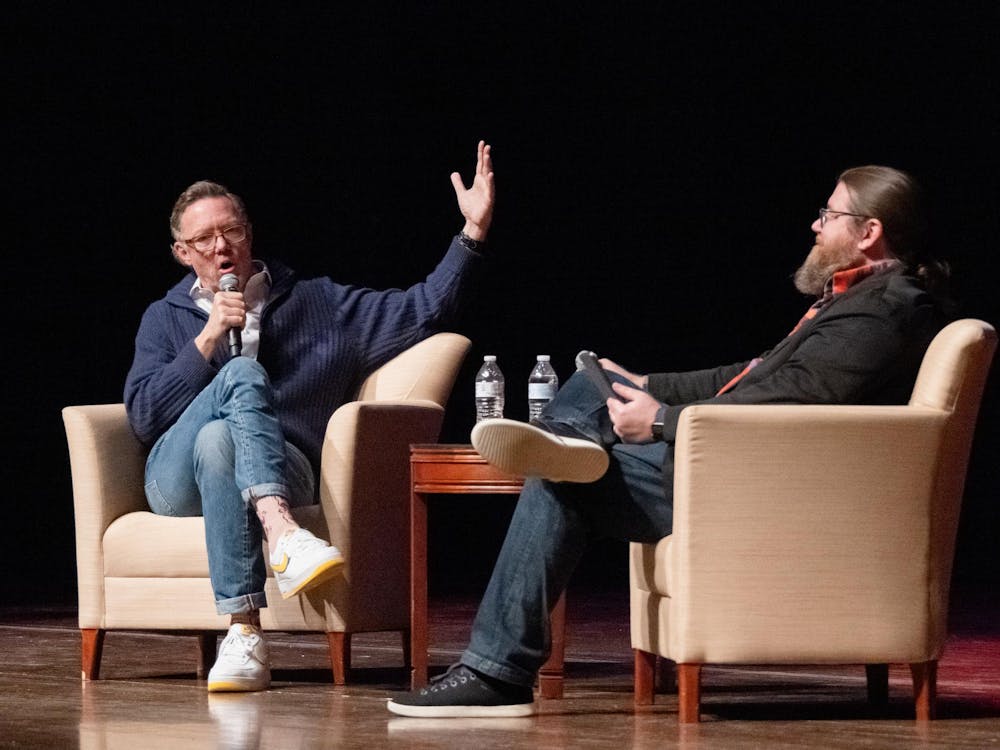With the investigation into the alleged Russian hacking of the 2016 presidential election in full-force and Trump's ordered missile strike in Syria complete, it poses the question -- will the United States ever be able to make amends with Russia?
Jack Matlock, a U.S. ambassador to the Soviet Union during the Reagan-Bush era, isn't sure.
"The possibility is there. But our own politics don't command it," said Matlock.
In a lecture sponsored by the Havighurst Center for Russian and Post-Soviet Studies, Matlock spoke about his perceptions of the past, present and future of the United States' relationship with Russia. Originally, the event, held on Thursday in Harrison Hall,was supposed to host former ambassador John Beyrle as well, but inclement weather prohibited Beyrle from traveling to Oxford.
Walter Havighurst, a former author and English professor at Miami University, made the development of the center possible with an endowment.
"Walter Havighurst wanted dialogue between Russia and America to be the center of what his [endowment] went towards," said Stephen Norris, interim director of the Havighurst Center.
Norris organized the event in August of last year, knowing that tensions between the United States and Russia were rising.
Tension between the two countries is just what Matlock hates to see. He described himself as "never being a hardliner when it [comes]to dealing with Russia."
Matlock received his bachelor's degree from Duke University and his master's at Columbia, with a focus on Russian studies. He joined the Foreign Service in 1956, launching his 35-year career which included roles as Director of Soviet Affairs ('71-'74), U.S. Ambassador to Czechoslovakia ('81-'83) and U.S. Ambassador to the Soviet Union ('87-'91), appointed by President Reagan. He speaks five languages, has authored three books and is still teaching at Duke University.
The life-long-Democrat-turned-independent has views regarding Russia that align more with President Trump than the man he strongly supported, former President Obama. Matlock advocates for a better relationship between the two countries.
During his time as Ambassador, Matlock respected the cultures of the countries where he worked without making preconceived notions about them.
"I took the trouble of learning about them. When I went to Ukraine, I always did speeches in Ukrainian...so, I tried to show my respect for the various nationalities, but at the same time, the Russians would know I was really deeply attracted to their culture," he said.
Enjoy what you're reading?
Signup for our newsletter
However, it seems like the cooperation with Russia that Matlock tried to establish in the late 1980s has deteriorated, he said. What Norris referred to as this "renewed" Cold War, could be devastating for the United States -- and perhaps the rest of the world. Matlock said we are at the "brink" of another arms race which could involve nuclear weapons that have the potential to destroy the whole planet.
Matlock's message to the country was clear: forge a better relationship with Russia or "it's going to come back to haunt us again."
Matlock answered the question on many Americans' minds: why would we forge an alliance with a country who has hacked our election, invaded Crimea and expressed hostility towards the Baltic states?
Matlock read the declassified intelligence report about the alleged hacking.
"I find zero evidence that Russia had any influence on our election," Matlock said.
Matlock also expressed that the Baltic States should not be worried about any hostility or invasion from Russia, as Western media outlets have been reporting. He also noted that the Russian invasion of Crimea would have never happened if President Obama had excluded Ukraine from the North American Treaty Organization (NATO), respecting President Vladimir Putin's wishes to stop further expansion of NATO along the western border of Russia.
Nevertheless, both countries might have gone too far for us to turn things around, Matlock said. Though audience members and Norris himself tried to squeeze out an ounce of hope for the future of U.S./Russian relations, Matlock wasn't giving it.
"It's a long and complicated story, but I'd say that the U.S. acted sometimes inconsiderately -- not deliberately at first-- to try to alienate Russia. But, I would say, in response to the often domestic pressures, Russia often overreacted," said Matlock.



